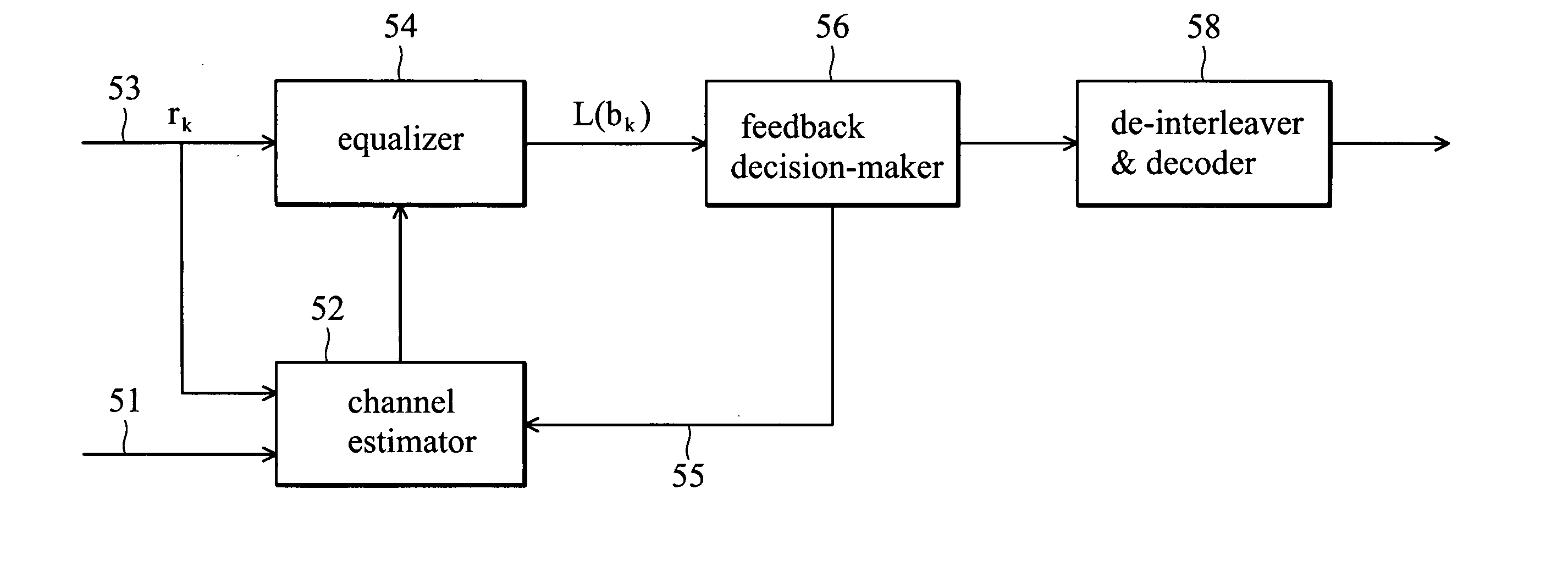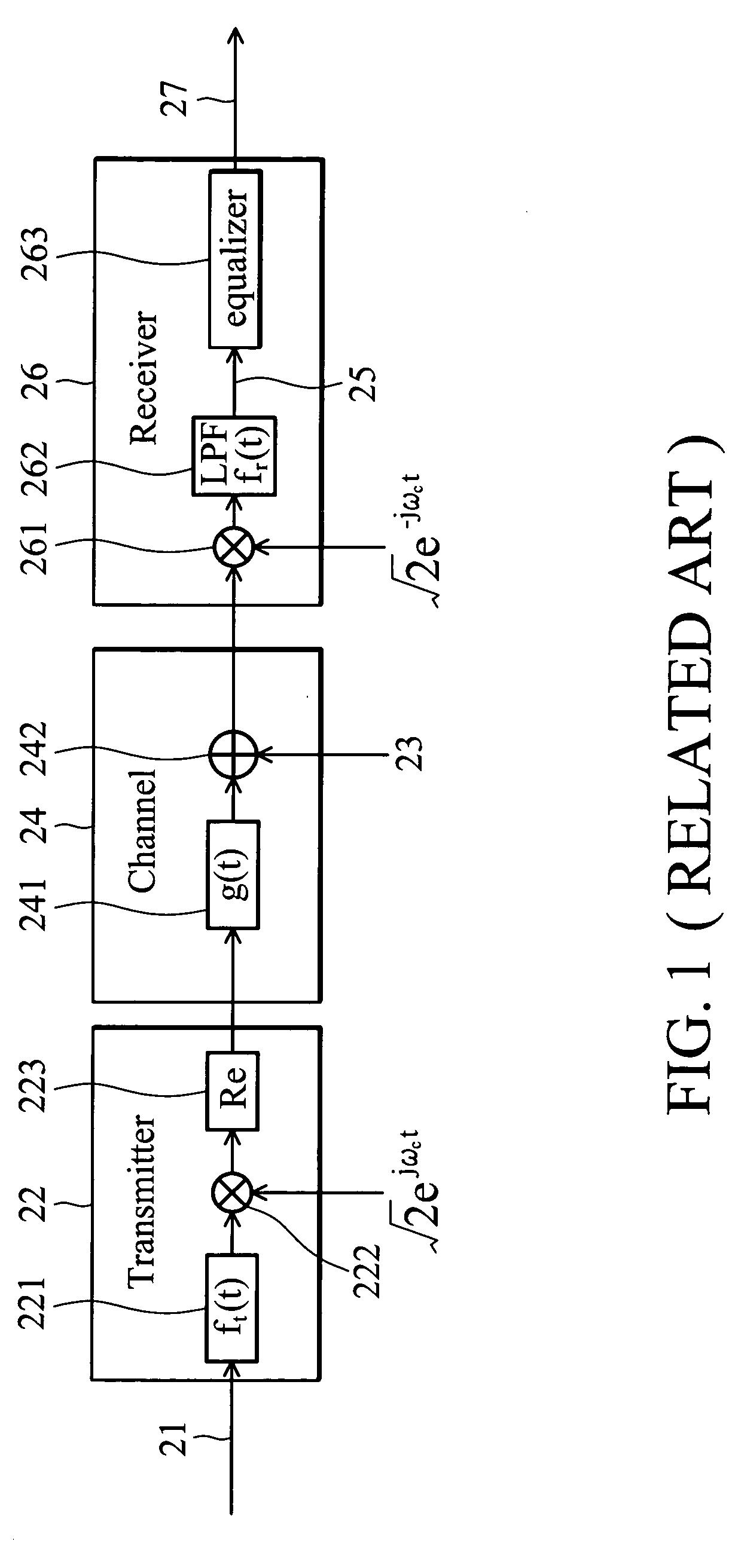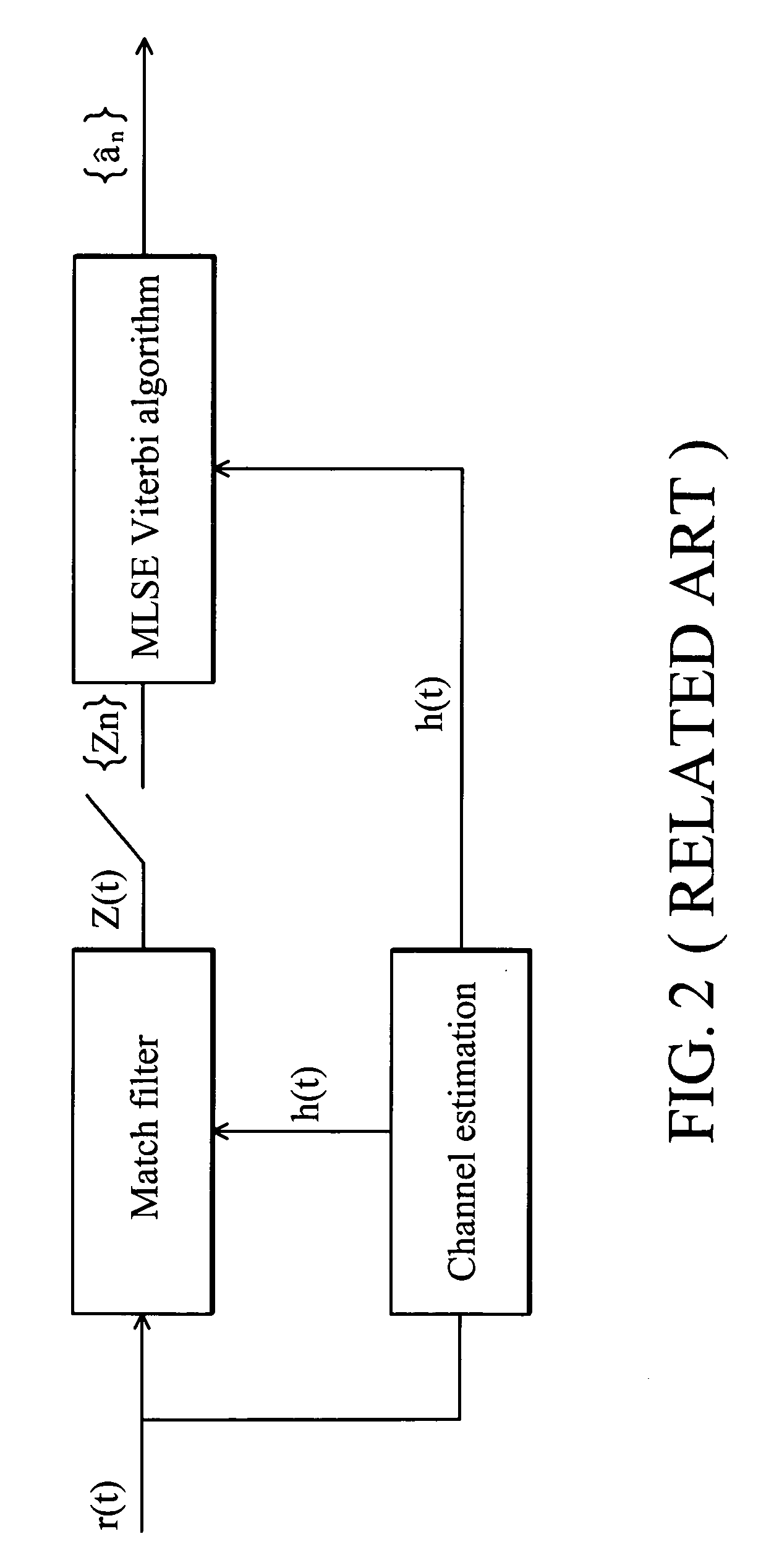Adaptive channel estimation using decision feedback
a decision feedback and channel estimation technology, applied in the field of channel estimation and equalization in a wireless communication system, can solve the problems of inability to improve and assume the noise of the channel, and achieve the effect of improving system performance and channel impulse respons
- Summary
- Abstract
- Description
- Claims
- Application Information
AI Technical Summary
Benefits of technology
Problems solved by technology
Method used
Image
Examples
Embodiment Construction
[0036] The performance of the Maximum Likelihood Sequence Estimation (MLSE) equalizer used in the wireless communication system depends on the accuracy of the estimated channel impulse response. Iterative channel estimation using decision feedback is a common method employed to achieve more accurate channel estimation. The present invention provides a method and system for determining whether decision feedback is appropriate to compromise between computation complexity and performance.
[0037] In the SOVA architecture, by observing the simulation result, the summation of the soft values is proportional to the power of the estimated channel impulse response. The summation of the soft values is comparatively small and the BER is high when the channel is fading. FIG. 4 shows the relationship between the soft summation and the BER. It is desirable to increase the soft summation value or reduce the BER in order to improve the system performance, which is achieved by applying more accurate...
PUM
 Login to View More
Login to View More Abstract
Description
Claims
Application Information
 Login to View More
Login to View More - R&D
- Intellectual Property
- Life Sciences
- Materials
- Tech Scout
- Unparalleled Data Quality
- Higher Quality Content
- 60% Fewer Hallucinations
Browse by: Latest US Patents, China's latest patents, Technical Efficacy Thesaurus, Application Domain, Technology Topic, Popular Technical Reports.
© 2025 PatSnap. All rights reserved.Legal|Privacy policy|Modern Slavery Act Transparency Statement|Sitemap|About US| Contact US: help@patsnap.com



